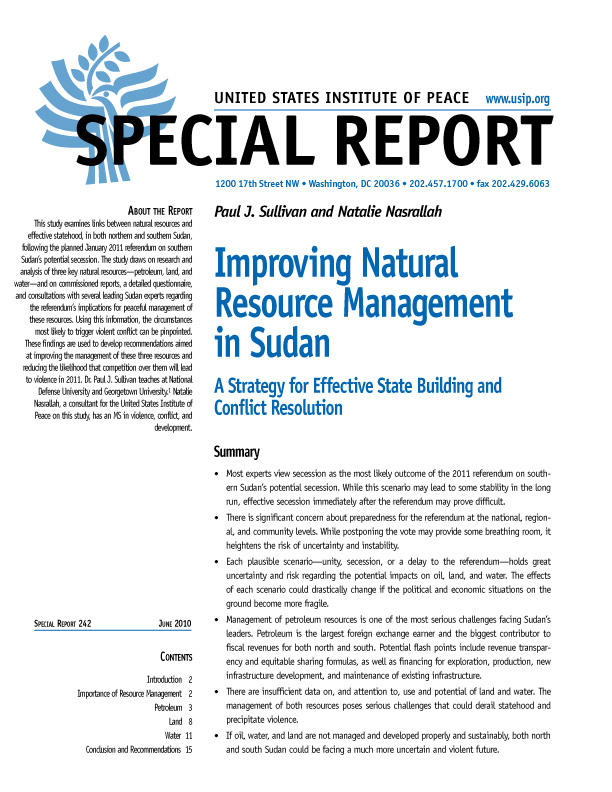Most experts view secession as the most likely outcome of the 2011 referendum on southern Sudan's potential secession. While this scenario may lead to some stability in the long run, effective secession immediately after the referendum may prove difficult.

Summary
- Most experts view secession as the most likely outcome of the 2011 referendum on southern Sudan's potential secession. While this scenario may lead to some stability in the long run, effective secession immediately after the referendum may prove difficult.
- There is significant concern about preparedness for the referendum at the national, regional, and community levels. While postponing the vote may provide some breathing room, it heightens the risk of uncertainty and instability.
- Each plausible scenario - unity, secession, or a delay to the referendum - holds great uncertainty and risk regarding the potential impacts on oil, land, and water. The effects of each scenario could drastically change if the political and economic situations on the ground become more fragile.
- Management of petroleum resources is one of the most serious challenges facing Sudan's leaders. Petroleum is the largest foreign exchange earner and the biggest contributor to fiscal revenues for both north and south. Potential flash points include revenue transparency and equitable sharing formulas, as well as financing for exploration, production, new infrastructure development, and maintenance of existing infrastructure.
- There are insufficient data on, and attention to, use and potential of land and water. The management of both resources poses serious challenges that could derail statehood and precipitate violence.
- If oil, water, and land are not managed and developed properly and sustainably, both north and south Sudan could be facing a much more uncertain and violent future.
About This Report
This study examines links between natural resources and effective statehood, in both northern and southern Sudan, following the planned January 2011 referendum on southern Sudan's potential secession. The study draws on research and analysis of three key natural resources - petroleum, land, and water - and on commissioned reports, a detailed questionnaire, and consultations with several leading Sudan experts regarding the referendum's implications for peaceful management of these resources. Using this information, the circumstances most likely to trigger conflict can be pinpointed. These findings are used to develop recommendations aimed at improving the management of these three resources and reducing the likelihood that competition over them will lead to violence in 2011. Dr. Paul J. Sullivan teaches at National Defense University and Georgetown University. Natalie Nasrallah, a consultant for the United States Institute of Peace on this study, has an MS in violence, conflict, and development.